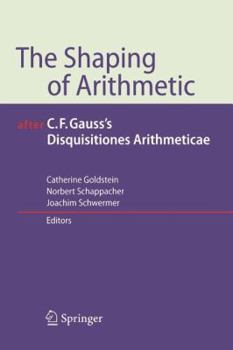The Shaping of Arithmetic After C.F. Gauss's Disquisitiones Arithmeticae
Select Format
Select Condition 
Book Overview
The cultural historian Theodore Merz called it "that great book with seven seals," the mathematician Leopold Kronecker, "the book of all books." Already one century after its publication, C.F. Gauss's Disquisitiones Arithmeticae (1801) had acquired an almost mythical reputation, standing as an ideal of exposition in notation, problems and methods; as a model of organization and theory building; and as a source of mathematical inspiration. Various readings of the Disquisitiones Arithmeticae have left their mark on developments as different as Galois's theory of algebraic equations, Lucas's primality tests, and Dedekind's theory of ideals. In this volume, eighteen authors--mathematicians, historians, and philosophers among them-- assess the impact of the Disquisitiones since its publication.





